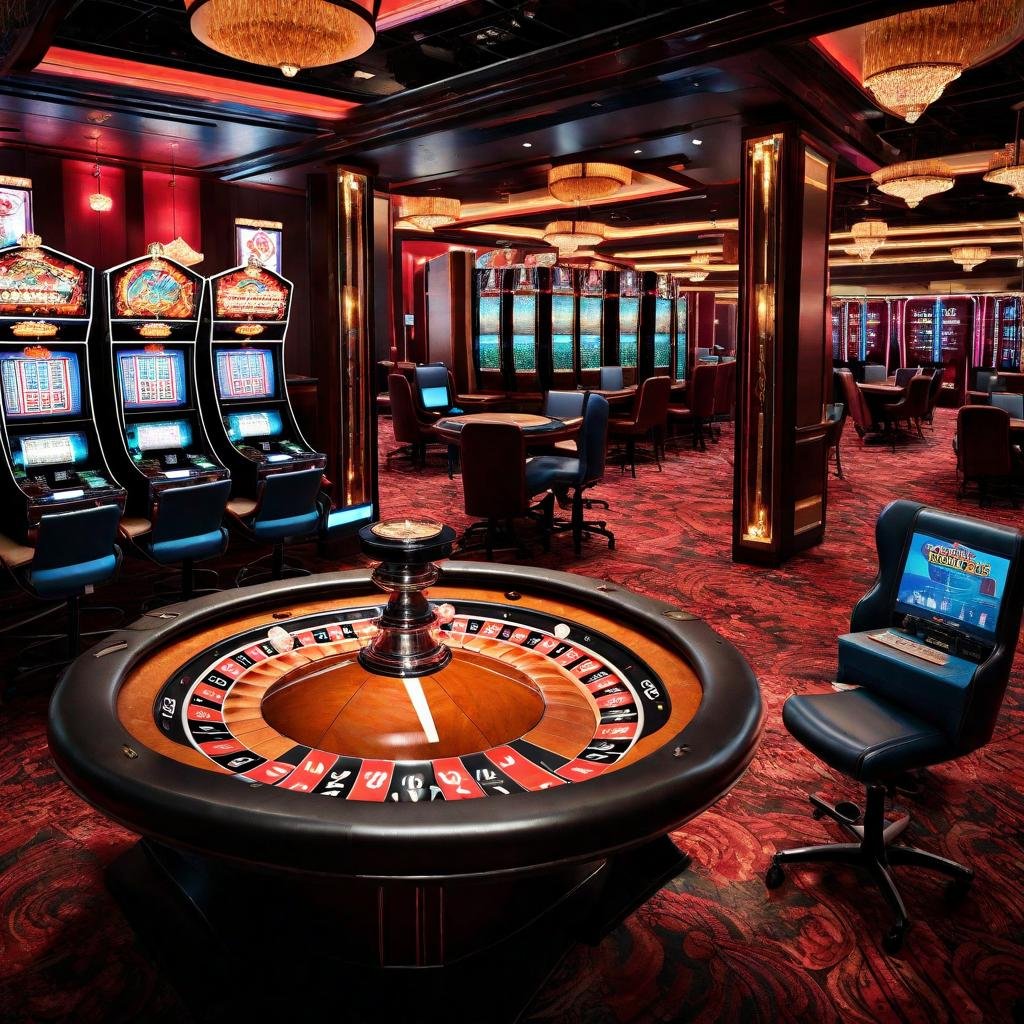A Societal Impact of Gambling Activities Worldwide

Gambling games have long been a fascinating entertainment option, drawing numerous of players from diverse cultures around the globe. From the glitzy casinos of Vegas to the busy gambling halls of the Chinese gambling capital, these games serve as a link that brings together people across different backgrounds. The allure of fortune, tactics, and risk entices not only those hoping to gamble for profit but also those seeking a feeling of belonging.
The significance of casino games extends significantly past the gaming floor. They often reflect the cultural standards and traditions of the societies in which they prosper. Games such as Texas hold ’em, 21, and the wheel game have woven themselves into the fabric of popular culture, influencing various aspects from movies to style. As we explore this fascinating intersection of luck and society, we can comprehend better how gambling games shape and are shaped by the world around us.
Chronological Progression of Casino Activities
The beginnings of gaming activities can be tracked back to historical civilizations, where betting in multiple forms was extensively practiced. In Ancient China, around 2300 B.C., a form of gambling known as Keno was well-known, while in historic the Roman Empire, soldiers would frequently wager on the results of their games. The concept of using chance for entertainment and gain progressed over the ages, leading to the formation of more organized games. By the late Middle Ages, betting houses began to appear in the continent, especially in Italy, which introduced early incarnations of famous activities still enjoyed today. MCW77
As betting increased fame in the continent, the 17th and 18th centuries saw the appearance of gaming houses as dedicated locations for gaming. The earliest official gambling house, the Ridotto, was founded in the city of Venice in the year 1638, featuring activities like Baccarat and Faro games. This period marked a significant pivoting point, as gaming venues started to attract not just the high society but also the growing middle-tier society. The sophistication of activities grew, leading to the introduction of new guidelines and variations that improved the play experience.
In the 19th century, the industrial age and shifts in social standards also changed the environment of gaming activities. The arrival of roulette and modern one-armed bandits pulled in a more diverse clientele, and gaming houses became seen as legitimate entertainment. This period witnessed the international spread of gambling, as casinos spread from Europe to the Western Hemisphere, culminating in the establishment of the iconic Las Vegas Strip in the 20th century. The development of gambling games has continued into the modern era, integrating new technologies and digital platforms, rendering them open to a worldwide market.
# Cultural Relevance across Different Communities
Casino activities have profound social significance in a multitude of societies around the planet. In Las Vegas, the very core of the city is woven around casinos, where gambling is not just a recreational activity but a key aspect of social engagement and community life. The dazzling lights and dynamic atmosphere attract a vast audience, showcasing how casino games can impact local economies and cultural identities. This surrounding transforms the notion of relaxation into an enriching encounter that shapes fashion, melodies, and even film.
On the other hand, some societies treat betting with greater care, considering it through the lens of morality and heritage. A case in point, in various Eastern communities, games like Mahjong and Pai Gow Gambling are steeped in history and possess significant social meanings. These games are often played during meetings and festivities, fostering community bonds and reinforcing family ties. The act of playing these games goes past mere leisure, reflecting ethics such as respect for elders and the significance of shared enjoyment.
At the same time, in Western countries such as the principality of Monaco and Rome, casino games serve as symbols of luxury and elegance. The elegant atmosphere of these venues attracts both visitors and native inhabitants, maintaining a sense of status and exclusivity. The art of poker and the tactical components of games like banker’s game are esteemed, molding community relationships and establishing an allure that enthralls a varied audience. This highlights how gambling can concurrently mirror and mold societal views towards hazard, benefit, and community interaction.
Economic Impact and Tourism
Casino games play a important role in the financial context of many areas, particularly those that rely heavily on tourism. The revenue generated from casino operations fuels local financial systems, creating jobs not only within the casinos themselves but also in related sectors such as hospitality, restaurant services, and entertainment. This surge of tourists, drawn by the allure of games and the overall gaming environment, stimulates expenditure across multiple local enterprises, contributing to the economic vitality of the region.
The presence of casinos often leads to the construction of facilities, including lodging, public transit, and leisure amenities. These improvements are essential in enhancing the overall visitor satisfaction, making locations more attractive to visitors. Additionally, many casinos invest in local communities through support of activities and charitable activities, further embedding themselves into the community structure of the locality. Such contribution not only supports economic growth but also cultivates a positive reputation of the gambling sector.
Furthermore, the global popularity of casino games drives tourism competition, with regions vying to attract gamblers from across the globe. Iconic locations like Las Vegas and Macau have become synonymous with casino culture, drawing millions each year. This advantage encourages creativity and variety within the gambling sector, influencing developments in entertainment and hospitality that resonate beyond their borders. The ripple effects of this visitor influx extend wide, impacting local financial health and cultural interactions on a global scale.